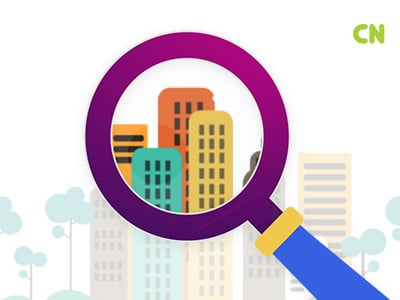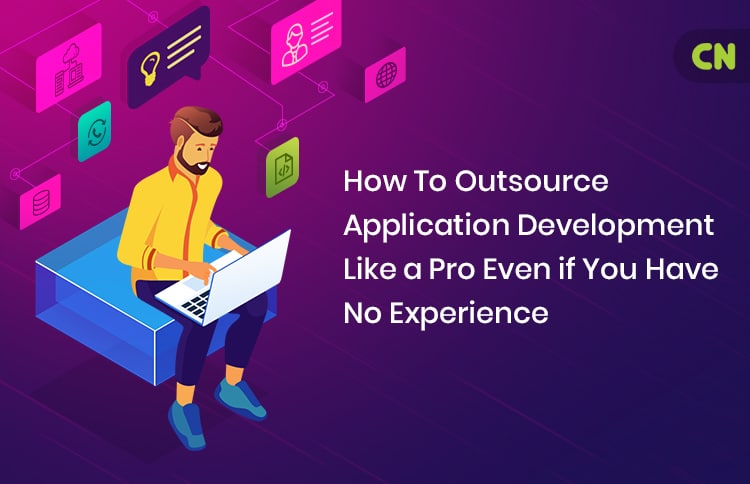How To Outsource Application Development Like a Pro Even if You Have No Experience
Table of Contents
Go from newcomer to outsourcing pro by following a few simple guidelines
The relative inexperience of newcomers means that they can sometimes get in their own way. They might do one or more of the following: complicate communications, invest a down payment without at least getting on a call, get in negotiation arguments and wasting time and money, or delaying payment and thus delaying the project.
On the other hand, pros are easy to spot. They’re clear and communicative. They agree to clear terms. They might have stricter requirements, because they know exactly what they want, but that actually makes them easier to work with. Outsourcing agencies operate best with clear lines of communication and clear direction.
As a newcomer, your success or failure will depend on the experience of the outsourcing agency you chose to work with. If you’re new to outsourcing, for example, it’s likely you’ll make several mistakes which are familiar to anyone who’s been in the industry for a long time. Then you’ll need to rely your outsourcing partner to keep the project moving along.
If you get a really good outsourcing agency, you’ll be in good hands. However… if you get a bad one, then your project will suffer. To avoid this uncertainty, it’s best to quickly advance as quickly as possible along the path from newcomer to experienced pro.
This article reveals how do so quickly, so you can outsource like a professional even if you don’t have much experience.
Read on.
Finding the Agency

This has been covered in many blog posts and articles before now, but that’s for good reason: it’s important!
Pros know the benefits of getting a good outsourcing agency as soon as possible, whereas newcomers might not be convinced.
Here’s what to consider:
Budget
You’ll have to keep budget in mind while looking for an outsourcing partner.
However, we DO NOT advise going with the very cheap “budget option.” While you might think you’re saving on costs, going to with the cheapest possible agency will probably result in delays down the line and a costlier overall project.
Remember, prices are signals. While outsourcing itself can be a good cost-saving option, some agencies operate very, very cheaply because they treat their workers poorly and deliver subpar results. So you need to make sure your chosen agency will be able to meet your needs and maintain good infrastructure and management processes so your development doesn’t stall.
Where to Find Them?
Put aside preconceived notions about working with agencies from certain countries.
Outsourcing has quickly become an efficient and professional industry in many large cities across the world. For instance, developers in India had to work to overcome a shaky reputation at the start, but they can now hold their own with any developer from the West. It’s always a pleasant surprise for our clients when they receive much better development than they expected.
Keeping your outsourcing efforts to a single geographic location will limit your options. No matter where they are, good agencies have the same goal: to do excellent work for you so you return for future projects. This way, everyone becomes more profitable and everyone wins. So it’s would be wise to look for developers from everywhere, not only your native country.
How to Check for Quality
When you’re selecting an agency, make sure to examine all of the usual points:
- Testimonials
- Portfolio
- Service offerings
- A well-designed site
And as a further precaution, keep an eye out for inconsistencies in the content of their site. If they say one thing only to contradict it later, this could be a signal of changing management or unclear direction among the workers. In either case, it signals potential future problems down the road.
Communication and Clarity

You and your outsourcing partner have different responsibilities.
The burden of communication falls on both parties, but pros know something newcomers don’t. They know how to be very clear about their expectations and needs up front, so future miscommunications don’t arise. IT IS YOUR RESPONSIBILITY TO CLEARLY CONVEY EXPECTATIONS. You alone know the details concerning what you want and what you expect; you alone can to communicate this to your outsourcing partner.
Onboarding
A good outsourcing agency will help guide you through the onboarding process, because it’s partially their responsibility as well. As we’ve mentioned, your outsourcing partner WANTS to do a good job so you return to them for repeat business. However… not all outsourcing agencies are created equal. Some will simply skip over this step or perform it improperly. Until you’re a pro who knows and trust their agency, you should provide as much information as possible, including:
- Wireframes and other mockups
- Preferences in management systems.
- Preferences in code and design.
- How the final project will integrate with your current ecosystem
- How the project will be evaluated at completion
Project Management
Capital Numbers has stringent information and project management systems in place to make sure nothing is missed or delayed when needed. But this is not necessarily the case for all outsourcing agencies. If you don’t think their processes will work for you, don’t be afraid to ask for different or additional communication channels.
You’ll need to agree on a communication and payment schedule. This might mean setting up pre-agreed milestones and communication channels. Video calls are the best for this purpose — getting on a call is the next best thing to meeting face to face.
Finally, you must actually review the work at each milestone. Don’t put it off till the whole thing is in place— that’s a great way to extend the project by months. If something is wrong, it’s better to catch it up front than at the end.
FINAL NOTE: Ask them to share the challenges in development as they arise. It’s best to keep informed of these things before small issues become big problems. When they do inform you of setbacks and challenges, don’t get upset. Every project hits snags and your communication and cooperation will save you time and money.
That brings us to the next point:
Be a Good Partner

So we’ve spent all this time identifying what to look for in a development partner, but what can you do to make yourself easy to work with?
This is NOT simply an idle question, because a very high percentage of outsourcing issues are completely avoidable on your end. You can save yourself some money and time by acting like a pro, not a newcomer.
Take Emotion Out Of It
The number one thing separating pros from obvious newcomers is how they react to setbacks and problems. Pros are cool, calm, and collected. They understand that all projects have issues, and these issues can be overcome from both ends. Newcomers feel anxious at the first setback and threaten to move up deadlines or shut the whole project down. Don’t do this. It only works against you.
Now, it may be difficult to take some degree of emotion out of the equation. After all, you might have a significant sum tied up in the development of any given project. But think about it… when has getting upset in a professional setting ever helped move things along?
The nature of software means it can’t be perfect. Pros know this — newbies might not. If you want results, it’s best to immediately plan and set a course of action to correct any mistakes or setbacks. This is efficient and minimizes risk to your time and money.
Fix Small Issues Before They Become Big Problems
Pros handle issues effectively by trusting their development partner and taking steps to correct something before it harms the entire project. Newcomers will lack the experience to know if issues are small and can be easily handled, or if the issues are large and require a significant deviation from the original project plan. That’s why we need to be so stringent in the selection of our development partner.
Remember, your agency wants to do a good job and keep you coming back. They’ll want to be open and clear with you about the requirements to fix issues. If you get over emotional about every problem, they may start to try to hide issues before you threaten to not pay. At this point, you’ll have distrust both ways, and the project will probably suffer.
If you’re concerned about something, just hire an outside consultant to look at the project and give you advice.
So, in summary, to be a good partner:
- Don’t be emotional in your communications
- Don’t make threats
- When issues arise, communicate with your remote partner to fix them
- Learn the difference between small issues and big problems
- Fix small issues before they become big problems
- Hire an outside consultant if you must
Conclusion
Even if you don’t have years of experience under your belt, there’s no reason you can’t outsource like a seasoned professional. Finding the right agency, insisting on clear communication and good project management, and being a good partner will reduce the amount of time needed to be an effective outsourcing pro.














